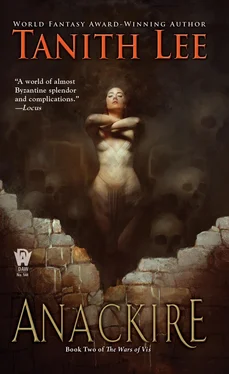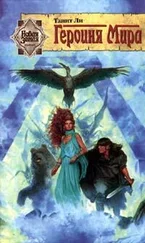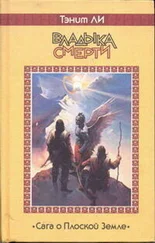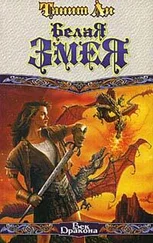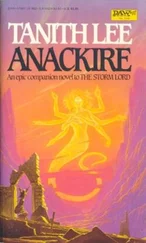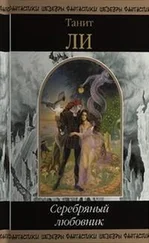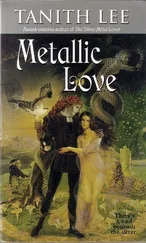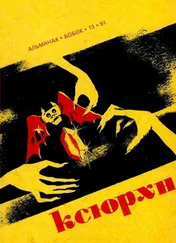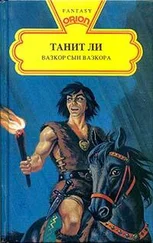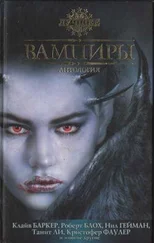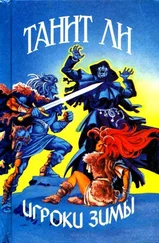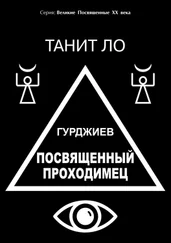Even the persuasions of Zastis might be channeled, used in other ways, a flame that would burn in alternate vessels. She commenced to know the wonderful freedom of the human heart discovering, suddenly and in surprise, that through itself alone may be evolved communion with the Infinite.
Yet the knowledge and the state were primal to her. She had not had time to understand entirely that either condition, the world or the spirit, was valid; that the soul was capable of as mighty adventuring as the flesh, conceivably more.
She was not ready therefore, and poorly defended. A priestess had come, a Vis woman, yet with that ambiance of the temple. The priestess had given her the news.
And now, the only image Val Nardia could conjure beyond the candle-flame was that of her brother. Of Kesarh, drifting on the shores of death, less than half a mile from this room.
Most of the lamps about the clearing had been doused. The piece of midnight which moved did not resolve itself until it entered the dim seepage of light from the cell. A woman’s shape, slender, folded in a cloak.
Rem stood up, waiting.
There was no need of a guard. Not here. No assassin surely, even of the King, would dare pollute this sanctuary. Yet Kesarh had not trusted, required some guard. The trustless would seldom completely trust, of course. Rem had recalled once or twice the screaming, burning sea beyond Tjis, and dismissed the memory. Rem had done deeds enough himself to haunt himself, if he wished so to be haunted.
He thought the woman a priestess, and was prepared to offer her some courteous cautious challenge, when the oil lamp in the cell started a glint of red under her hood.
“My lady.”
The Princess Val Nardia looked at him, her eyes wide, as if to ask a question, then the question became apparently superfluous. She went by him, and into the cell.
Rem glanced after her, and saw Kesarh. The medicines had not greatly quieted him. Either real or exaggerated, the fever still pushed him in a slow dance from side to side of the pallet. Banked up by the rough pillows, his head was now tilted back. He looked ghastly, dead but reflexively animate. It must terrify her.
Rem was about to speak. But Kesarh’s voice came out of the slowly tossing corpse, and told him in three words to walk off. Then it told Val Nardia to draw the curtain over the door.
The footfalls of the soldier went away. There began to be a long soundlessness.
“Kesarh,” Val Nardia murmured.
“Come closer. Snake venom isn’t contagious.” She did not stir. “Did they tell you what I said they should tell you?”
“That you might die,” she said. “They told me that.”
The smudgy eyes glared at her out of the livid face.
“Did you believe them?”
She had not discarded her hood and it obscured her; her head was bowed.
“I woke before dawn. I thought it was a dream—some vast and deadly stillness surrounding me—Tonight, they told me you were here, and why.”
“You’d heard I was to fight Zakorian pirates in the straits.”
“I knew nothing of that. We’re out of the world, on Ankabek.”
“ We ? My glorious victory means nothing to you, then. Or my death at Suthamun’s order.”
“The King—” Her head was raised. The swift movement after all dislodged the cloth from her shining hair. She saw him stare at her, and fell silent.
“The King,” he said slowly, “guesses what I might become, in despite of him. He’s realized, maybe, I won’t be content with a strip of mud at Xai and ten soldiers at my back.” Kesarh let go the tension that had seemed to hold him. His body sank down into the pallet, his eyes shut. “But all that’s ceased to matter. If I die, I’ll trouble Suthamun no longer.”
Not seeing her, he heard the rustle of her cloak. Then the fragrance of her, either some perfume or her very skin, hair, soul, flowed into his brain. He did not raise his lids. For some reason on the black behind them he saw the empty space where the sword had stood in the chamber at Tjis, the sword which had reverted to a serpent—or been filched by some clever method through the bars of the window lattice, just before the snake was fed in there. Then Val Nardia’s fingers came down like weightless birds on his forehead. He sighed at their coolness, their gentleness.
“Don’t speak of dying,” she said. “Believe in your recovery, and you will recover. They would never have left you alone here if they thought you close to death.”
“Why not?” he muttered. “There’s my soldier to watch me. And they sent you.”
“I wasn’t sent. They only told me you’d asked for me.”
“And in compassion and pity you overcame your aversion, and forced yourself to my bedside.”
Her hand drifted from his face and he reached out and caught her hand in one of his. He opened his eyes and looked at her, into the radiant light of her beauty where all the illumination of the tiny room seemed concentrated. She was white, afraid for him and so, for now, no longer of him.
“Since we were children,” he said, “whom did we have to trust save each other?”
Her eyes faltered. They were bright with tears.
“Kesarh—”
“If you want me to live, I’ll live for you. Poison, disease, the wound of any battle—nothing. I’ll run through flood and fire and thunderbolt, unscathed. You can make me invulnerable.”
She wept then, briefly. She did not, even weeping, take her hand from his.
Later, the fever going out, he slept. In the sleep, once, he spoke to her, calling her, as in their childhood together, Ulis . It was the name of a rare scarlet summer flower, indigenous now only to the cultured gardens of Karmiss.
He returned once, and stopped ten paces from the curtained door. Having been dismissed, Rem’s purpose on the island was nullified. And there was no menace in the darkness under the foliage; nothing.
The sense of oppression emanated from the cell itself. Its source was presumably the Prince Kesarh Am Xai. Rem had no urge to meddle, and had gone away gladly, not even curious. He did not understand the feeling; it was hypothetical yet threatening, like unknown footsteps heard by the blind.
Having checked the clearing this second time, Rem once more moved off, on this occasion toward the low summit where the temple stood.
Ankabek was now immeasurably quiet. To one used to nights in Istris, or in some camp of men, the quiet was unfamiliar, partly disturbing. It seemed trembling always on the brink of an insidious whisper.
Near the temple, the trees fell back, and the inflamed eye of Zastis sheered through filaments of cloud. The darkness reddened.
Rem halted, considering the temple, its great doors closed, walls windowless.
Why had he come up here, to look at this?
Yet strange, he would not be the first to think it: The pale people of the Lowlands who built their cities and temples of black stone, the dark Vis who built in crystal and stone whiter than salt.
Rem moved forward again. He had a peculiar urge to touch those immutable-looking doors, maybe crash his fists against them. They would not let him in. He was neither worshipper nor acolyte. Ashara, Ashkar, Anackire—his mother had reverenced other gods, Yasmais, chiefly.
When he was not far off, the big immutable, impenetrable doors swung inward. There was only the mildest noise. Some mechanism, then, must be automatically in operation under the threshold. Any might enter, who had the wit to approach. Of course, that was what they said of the goddess. Seek Her, you will find Her. Seek Her not, She is not.
A vague glimmer, hardly even to be called light, hung inside the temple. He could walk into it, or away.
Rem, once called Rarnammon, walked into the temple. When, after a few steps, the doors swung shut behind him, he hesitated, looking back. But they would open again when he returned. This was no trap. He went on.
Читать дальше
